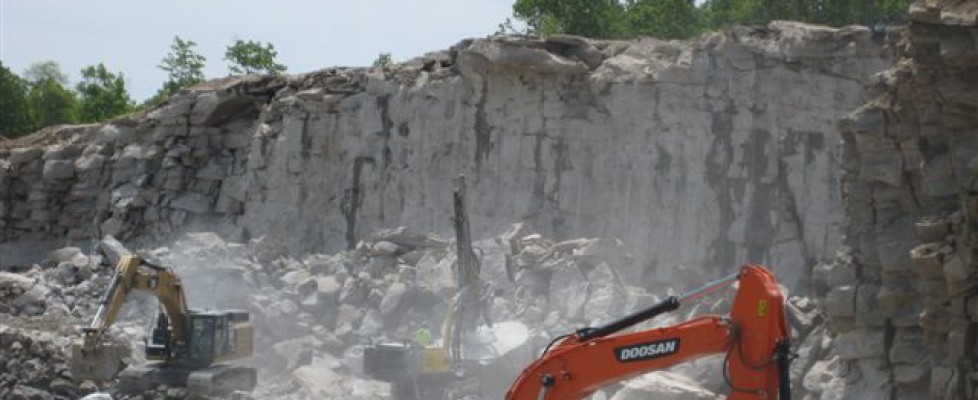Charlestown Delegation Lobbies Legislature
Delegation Asks Legislature to Give Charlestown Ability to Regulate Quarries
Filippi’s Bill Authorizes Charlestown to Regulate Excavation and Extraction Activity
Town Councilors Tom Gentz and George Tremblay and a group of local citizens testified on Thursday, January 28th, before the House Committee on Municipal Government, Representative Robert Craven presiding.
Representative Blake Filippi was invited to speak first, to explain the purpose of his proposed legislation, H-7216. He was followed by Tom Gentz, who provided the background history in support of the need for Representative Filippi’s proposed legislation. (You can read Tom’s testimony under the next tab above) George Tremblay spoke next explaining that the Town acknowledges that it has the authority to write an ordinance regulating the extraction industry within its borders, and that the Planning Commission has written a draft of such an ordinance, but the Town Council is less certain of its authority to enforce the terms of the ordinance on pre-existing operations. George explained that the town is asking for the enabling legislation introduced by Rep. Filippi to improve our prospects for surviving a legal challenge to enforcement.
George was followed by Charlestown resident Tina Holden-Shea and then a citizen of Westerly spoke. Both of these citizens recounted the adverse impact of this rogue operation on the health and welfare of neighbors to the quarry.
Julie Carroccia and Steve Williams (both of Charlestown, but outside the shadow of the quarry) also spoke on behalf of stronger regulation of extraction operations.
Two opponents spoke next, first a representative of a quarrying operation in Cumberland, and then Roland Fiore in his capacity as President of the RI Builders Association, but also, of course, as owner of South County Sand and Gravel. Fiore argued that enough regulation was already in place. Rep. Filippi asked a series of questions of Fiore on specific regulatory authority over certain aspects of the operation (hours of operation, remediation and restoration, noise levels, dust control, and the like). To his credit, Fiore answered forthrightly. He was not evasive, even though some of his responses suggested an added need for local control, and inadequate performance of existing authorized regulatory bodies at the state level. Rep Filippi did an excellent job of eliciting testimony that exposed current inadequacies.
A member of the House Committee then summarized the adverse impact of the Copar operation, extended her deep sympathies to the victims of the rogue operation, but reserved her greater compassion for the businesses that would be burdened by additional regulation.
Don’t let this committee hearing be the last word, check under the “Get Involved” tab above, for actions you can take to get this legislation moving.
